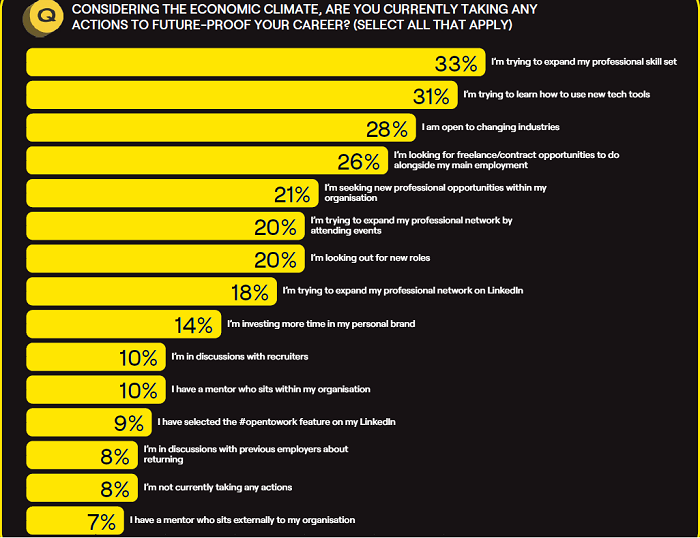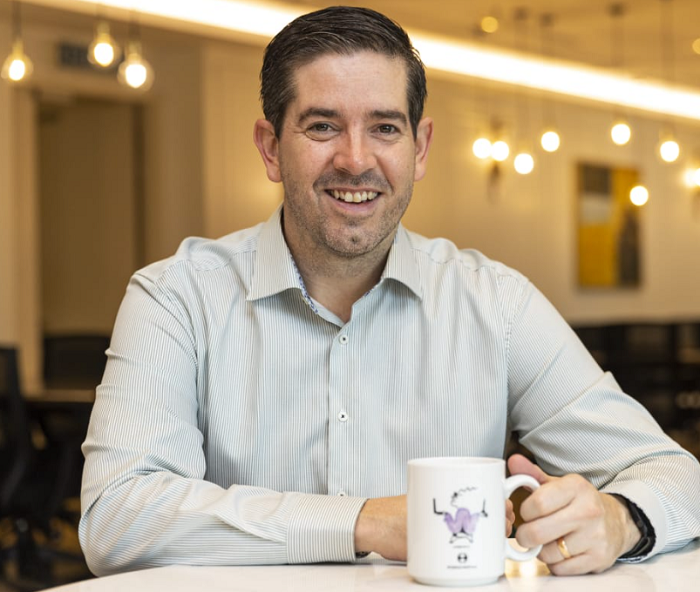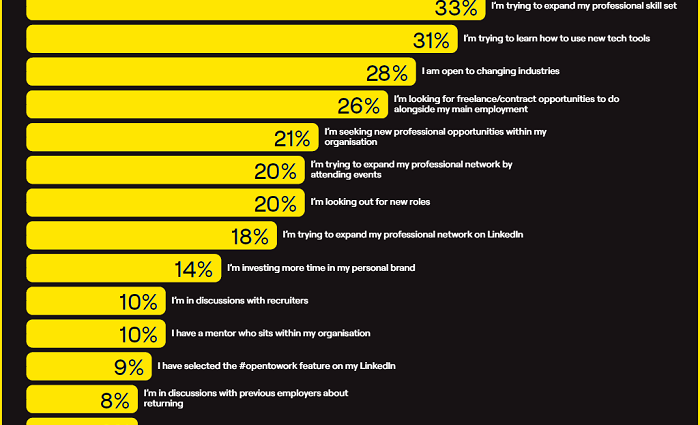- Employment has to be seen as a relationship, with trust, with transparency
- Bosses should allow open communication and trust into the relationship

“The most fascinating statistic that I saw on this is career cushioning, and the fact that of all the countries we surveyed, the highest was Malaysia. I’ll admit this term is new to me,” said Kevin Fitzgerald, the newly appointed Managing Director of Employment Hero Asia, speaking during the unveiling of the Malaysian specific data from Employment Hero’s 2023 Talent Insights Report yesterday.
The survey was conducted in January with 1,000 employees in Malaysia and is aimed to better understand current talent trends since the last survey in late 2021. It revealed that out of five countries surveyed (Australia, New Zealand, UK, Singapore and Malaysia), 92% of Malaysian employees are career cushioning.
While generally thought of as having a backup plan for unemployment, LinkedIn paints a broader picture that includes, learning new skills or upskilling; updating your LinkedIn profile; warming up your network; or taking on extra hours, extra jobs and working on your side hustle. This is showing up in LinkedIn data – employees are marketing their skills more, with 365 million skills added to LinkedIn profiles over the past 12 months, up 43% year over year.
From the Malaysian respondents of the Employment Hero survey, the main motivators for this career cushioning are, poor company culture (43%), dislike for their boss (38%), and lack of appreciation (34%).
According to Employment Hero, apart from a constant desire for more recognition, this is a shift from 2021; where the top three motivators were a lack of career opportunities, a lack of appreciation or recognition and a lack of training opportunities. There is definitely a red flag around culture as in 2021, only 27% of those looking for another job were fuelled by poor company culture. Corporate leaders, beware.
In 2021, only 19% were motivated to leave by a dislike for their boss but this has increased by 100%, so, bosses beware too.
 Speaking at a post report panel discussion Kevin (pic), who was joined by Vijay Tangarasan, Country Director of IWG and Audra Pakalnyte, Head of Strategic Initiatives of Fave, offered another key reason behind career cushioning – the range of learning opportunities that one can access online. He points to what he considers is a key statistic backing this up. 18% of Malaysian employees would remain in their current role if they have better learning opportunities in 2023 compared to the stark 0% two years ago.
Speaking at a post report panel discussion Kevin (pic), who was joined by Vijay Tangarasan, Country Director of IWG and Audra Pakalnyte, Head of Strategic Initiatives of Fave, offered another key reason behind career cushioning – the range of learning opportunities that one can access online. He points to what he considers is a key statistic backing this up. 18% of Malaysian employees would remain in their current role if they have better learning opportunities in 2023 compared to the stark 0% two years ago.
“If I want to learn Bahasa Indonesia online, I can go on and take a lesson for like US$10 or free. I couldn’t do that 10 years ago and I think Malaysians are seeing that opportunity, ” Kevin, who has an Indonesian spouse, explains.
“Furthermore, there are two types of boss mindset; one would be against employees learning, believing that they’re wasting their time or plan on leaving, while the other believes that they’re adding more value to the company through self-development,” he opined.
Audra agreed with Kevin’s sentiment, saying that career cushioning is a win-win situation. “The employee is learning something, and we constantly encourage learning within Fave, which is going to benefit the organization anyway.”
She believes that employment has to be seen as a relationship. There has to be trust, there has to be transparency, and even vulnerability. Yet this does not happen enough. “A lot employees just don’t feel safe due to the uncertain economy with so many layoffs happening especially in the tech space. This will lead to them to change jobs every one to two years in order to find opportunities that may not necessarily be better,” she elaborated.
This is especially the case when it comes to Gen Z, who are just getting into a workspace, where fresh-grad salaries in Malaysia have remained the same for the past 14 years while the cost of living has increased.
“Therefore, bosses should allow open communication and trust into the relationship, especially when it comes to where the business is heading, its outlook in the next one or two years, and how each individual can contribute to the future proofing of the company and themselves,” Audra said.
Audra’s remark about starting fresh grad salaries not changing much over the past 14 years (the period she has been in Malaysia) is a large contributing factor why 45% of Malaysians feel like their salaries are not catching up with inflation.
Another standout issue among Malaysians surveyed is around internal mobility which was not a key issue in 2021 where 35% of employees said they were looking internally for their next move.
In 2023, however, staff looking for a promotion or lateral move jumped to 48% with various actions taken by them (see table below). Employment Hero notes that more employees looking to move internally than externally for their next role, strongly suggests an end to the ‘Great Resignation’ trend. This however never manifested in Malaysia and was more a US based trend but which has also abated there.
Malaysians also have become homebound, with 59% willing to consider a move overseas compared to 72% in 2021. This could be due to the fact that there is global demand for many technical oriented roles that can be performed over the internet where talent is in short supply, leading to employers willing to hire remote workers. The combination of a stronger currency salary with Malaysian quality of life is a factor at play here.


